
When loved ones pass on, they often leave behind more than possessions. In these three stories, unexpected inheritances uncovered surprising secrets, painful truths, and life-changing lessons, proving that true legacy isn’t always material.
These remarkable inheritance stories reveal twists that brought life’s greatest lessons. They proved that the most valuable gifts can’t be measured in money.
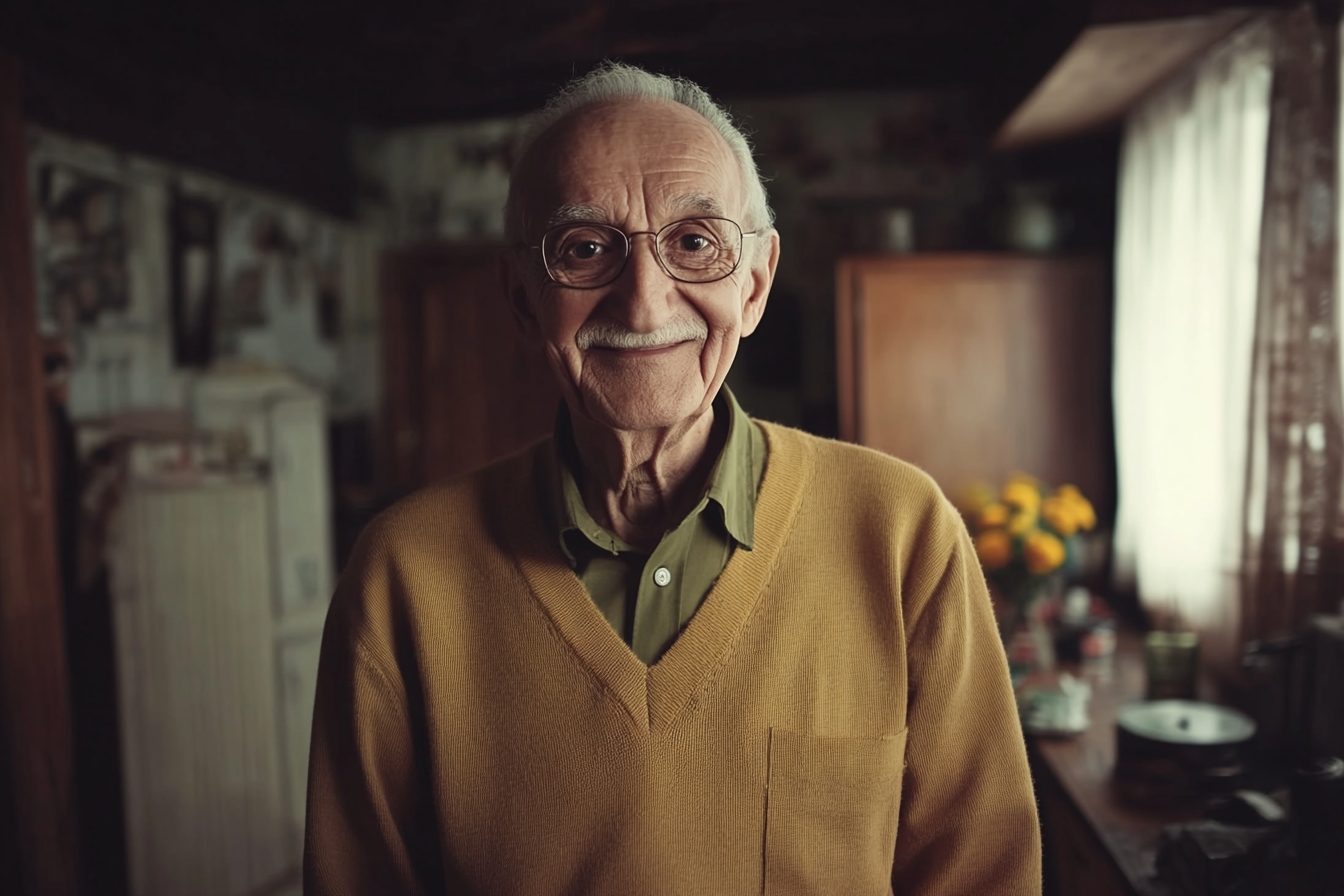
An older man smiling | Source: Midjourney
1. I Inherited Grandma’s Old Clocks & My Greedy Brother Got the House
I adored my grandma, Marlene, more than anything. Until a year ago, I’d lived with her, sharing her cozy little house filled with her collection of old clocks and stories. She was my safe haven and my biggest fan.
But last year, I had to move away because of college.
One evening, I got a call from her. Her voice sounded soft and frail.

A woman looking at her phone | Source: Pexels
“Linda, sweetheart, could you come over? I don’t think I have much time left,” she said, almost in a whisper.
My heart sank. “Oh, Granny, don’t talk like that! I’ll apply for leave right away and be there in a couple of days. Don’t you worry, okay?”
When I arrived at her house three days later, my brother Brian was already there. He was a few years older than me, with a sharp edge to his personality.
I immediately rushed to hug her upon entering the house.
“I’m here, Grandma,” I whispered, feeling an ache in my heart.

A woman in her grandmother’s house | Source: Midjourney
“Oh, my sweet girl,” she smiled, looking so tired yet so happy.
Meanwhile, Brian glanced around with a frown.
“At least you could have kept the house clean, Grandma. It’s so… dusty,” he muttered, brushing an imaginary speck off his shoulder.
Oh please, Brian! I thought. Grandma needs care, not criticism.
I just rolled my eyes and ignored him because I didn’t want to create a scene in front of Grandma.
A few minutes later, she sat us down in her small living room and handed each of us an envelope.
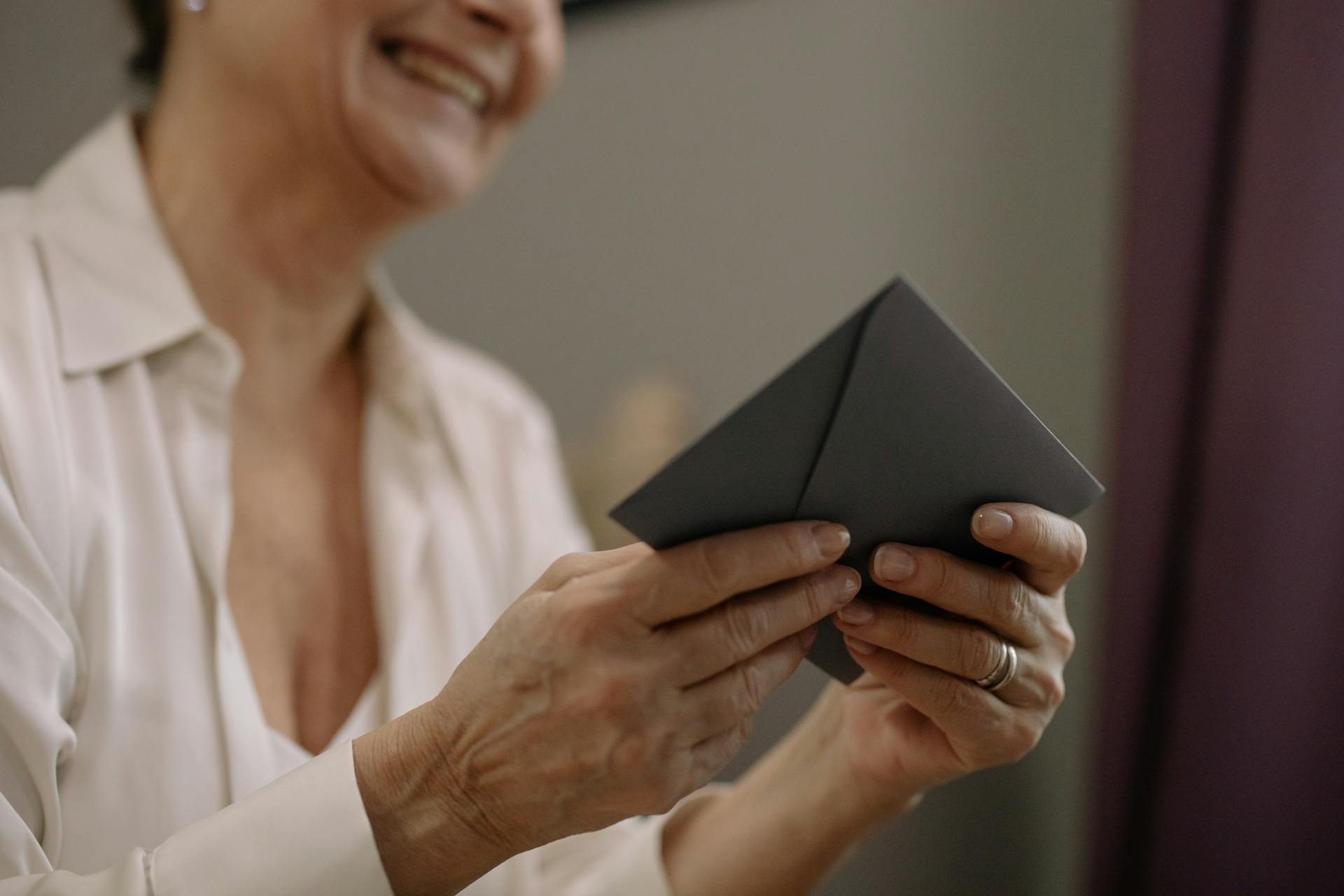
An older woman holding an envelope | Source: Pexels
Inside was $5,000.
“Linda, Brian, I wanted to give you both something,” she said, her voice trembling slightly.
I took her hand. “Granny, you didn’t have to do this. I’m here to spend time with you, not for money.”
Brian, on the other hand, scowled. “Is this all I get? Seriously?”
Before Grandma could respond, he stormed outside, slamming the door behind him.
He’s crazy, I thought.

A woman standing near a door | Source: Midjourney
I stayed by her side over the next few days, cleaning the house, cooking fresh meals, and fixing things up. She had been living on stale food, and there were cracks and leaks that hadn’t been tended to in years.
“You don’t have to do so much, Linda. I don’t want to take up all your time and money,” she said, shaking her head as I patched a leak.
I grinned, holding her hand. “Grandma, I know how much you’ve always wanted Grandpa’s house to feel like home again. I had some savings, so I thought, why not? Are you happy now, Grandma? Is this how you remember it with Grandpa?”

A woman talking to her grandmother | Source: Midjourney
“Oh, Linda,” she smiled as tears trickled down her cheeks. “Yes. Yes, it’s beautiful. Thank you.”
Then, one quiet morning, I found her peacefully gone in her sleep. The house felt hollow without her laughter and warmth.
Meanwhile, Brian didn’t even come to the funeral. It hurt me deeply, but I tried to focus on honoring her memory.
Two weeks later, we were called to the lawyer’s office for the reading of her will. Brian and I sat in silence as the lawyer began.

A lawyer sitting in his office | Source: Pexels
“Brian,” he announced, “you have been left the house.”
Brian smirked, clearly pleased. He always had his eyes on the house.
Then, the lawyer turned to me, smiling gently. “Linda, your grandmother left you her clocks.”
“The… clocks?” I asked, feeling a bit deflated.
He handed me five old, rusty clocks, each with a dull patina. My face flushed with embarrassment as Brian snickered.
But then the lawyer handed me an envelope.

An envelope on a table | Source: Pexels
“Your grandmother loved you more than anyone, Linda,” he said softly.
Curious, I opened the envelope. The note inside was in Grandma’s handwriting:
Linda, never underestimate these rusty old clocks!
They are 100-year-old classic timepieces that belonged to your grandfather. Each piece is crafted from rare, exquisite metal and worth about $40,000!
Everyone gets what they truly deserve, my dear. I’m glad you got only the best.
With all my love, Granny Marlene.
My heart raced as I read her words.

A woman reading a letter | Source: Midjourney
“She left nearly $200,000 hidden in these seemingly worn-out clocks,” the lawyer smiled.
I looked at the clocks as tears blurred my vision. Meanwhile, Brian rose from his seat.
“What? Those things are worth that much?” he asked, his face pale.
I smiled through my tears. “Yes, Brian. Grandma knew exactly what she was doing.”
I clutched one of the clocks close to my chest, and felt as its rhythm synced with my heartbeat. It felt almost as if Grandma was still with me.
Thank you, Grandma, I thought as I walked out of the office with her beloved clocks. Thank you for giving me a piece of your heart to carry forever.

A woman smiling | Source: Midjourney
2. Grandma’s Will Left Me Nothing Until I Discovered Her Secret Plan
My grandma was everything to me. Growing up, I spent every free moment on her farm, learning the rhythm of the land and the needs of the animals. I enjoyed everything from feeding the chickens to watching the crops grow.
Meanwhile, my sister, Felicity, only visited the farm to click beautiful photos for her social media.
So, when Grandma passed, it felt like a piece of me went with her. Losing her so suddenly was a shock I wasn’t ready for.

A woman looking outside the window | Source: Midjourney
Shortly after her passing, I got a call from her lawyer. “Diana, we’re reading the will tomorrow at noon. You and Felicity need to be there.”
My heart pounded as I arrived at his office, Felicity already seated with her typical annoyed expression.
The lawyer cleared his throat, then handed me an envelope. It was a letter from Grandma.

A woman opening an envelope | Source: Pexels
My dearest Diana,
If you’re reading this, the time has come for a choice. I know you love this farm, and it has been a part of you as much as it was of me. But I needed to be sure that its true caretaker would emerge. I have left the farm to Felicity, but I have also granted you the right to live here as long as you wish.
As long as you remain on the farm, it cannot be sold. Please be patient, my dear. The second part of my will shall be revealed in three months.
Love,
Grandma.

A woman reading a letter | Source: Midjourney
I swallowed hard, confusion mixing with pain. Why didn’t she leave the farm to me outright? Didn’t she trust me?
Still, I respected her wishes and resolved to stay on the farm. Felicity, of course, had other plans.
“Diana,” she sneered the following week, waving a check in my face. “Why don’t you just take this and leave? You can’t live out here forever.”
I shook my head. “This is what Grandma wanted. I’m staying.”

A woman talking to her sister | Source: Midjourney
“Get over it, Diana!” she snapped. “Go home!”
Her frustration turned into an all-out war a few days later when the farmhouse caught fire. I stood there, helpless, as flames devoured my memories.
Jack, the farm’s caretaker, held my arm to steady me. “It’s okay, Diana. We can rebuild.”
“But the house… everything’s gone,” I cried.
A few hours later, Jack and I saw Felicity hovering near the wreckage. She seemed too pleased for someone who lost a major part of her property.

A woman smiling | Source: Midjourney
“What are you doing here?” I asked. “When did you come?”
“I just… arrived,” she stammered. “But, uh, the house is gone. So what’s left here for you, Diana?”
“What do you mean?” I asked.
“You should leave before you lose your job over this obsession!”
“I won’t leave,” I replied. “I’m not going anywhere.”

A woman talking to her sister | Source: Midjourney
Jack took me aside afterward, gently nudging me to consider leaving, but I couldn’t. Grandma’s memory was tied to every inch of that farm.
Understanding my stubbornness, Jack kindly offered me a room at his house, which was nearby.
I spent the next few months living there, visiting the farm every day. Even after I lost my job, all I cared about was keeping Grandma’s legacy alive.
When three months finally passed, the lawyer called us in again to read the second part of the will.
I took a deep breath as the lawyer opened a sealed envelope and began to read aloud.
“My dear Felicity and Diana,” he began.

A lawyer in his office | Source: Pexels
“If you’re hearing this, the time has come for the farm to find its true guardian. Felicity, I know this may come as a surprise, but I always intended for the farm to belong to the one who truly cares for it. As far as I know, Diana has taken responsibility for managing the farm, so if no one objects…”
Felicity’s face paled. She cut him off, shouting, “This is ridiculous! Diana burned down the house! She’s a failure!”
But Jack, who had accompanied me, stood up calmly.

A man standing in a lawyer’s office | Source: Midjourney
“I think it’s time we tell the truth,” he said, handing the lawyer a receipt. “I saw Felicity near the farm on the day of the fire. She was seen purchasing gasoline from the local store that afternoon.”
The lawyer looked over the receipt, then leveled a firm gaze at Felicity. “This evidence suggests otherwise, Ms. Felicity.”
“That’s not true,” she lied, but she couldn’t hide the truth for too long.
“Fine! Yes, it was me!” she snapped and then looked at me. “Somebody had to help her move on!”

A woman looking straight ahead | Source: Midjourney
“You’ll have to face some legal consequences for your actions, Ms. Felicity,” the lawyer said.
Then, he turned to me and said, “Diana, the farm is now officially yours.”
I stood there with eyes wide open as I realized what Grandma had done. She had known all along.
By giving Felicity control with conditions, she had drawn out Felicity’s true nature, leaving the farm in the hands of the person who would care for it.

A close-up shot of a woman’s face | Source: Midjourney
3. I Was Upset That My Grandfather Only Left Me an Old Apiary until I Looked into the Beehives
When I was fifteen, my grandfather, David, passed away. I was devastated. I never thought my loving, wise Grandpa, who had raised me with Aunt Daphne, would leave me so soon.
He’d always been there, filling our home with stories, patience, and life lessons I’d only half-listened to. Losing him left a hole I couldn’t understand, and a part of me expected his will might hold some comfort.

A worried 15-year-old girl | Source: Midjourney
At the reading, my older brother, Richard, inherited nearly a million dollars.
I felt my heart sink when the lawyer only handed me an envelope. Inside was a letter from Grandpa.
My dearest Chloe,
I know you might feel let down, but please hear me out. I’m leaving you my apiary with al the beehives I’ve spent years tending to. It may not seem like much now, but trust me, you’ll see its true value in time. With patience and care, it will teach you things far more valuable than money.
With all my love,
Grandpa.

A close-up shot of a letter | Source: Pexels
“An apiary?” I muttered.
The impatient teenager that I was couldn’t understand why Grandpa wanted me to have that old collection of beehives.
Days passed, and I ignored the apiary. I shrugged it off whenever Aunt Daphne nudged me to check on it.
I couldn’t be bothered, especially with a dozen other things on my mind.
Finally, Aunt Daphne put her foot down.
“You’re grounded, young lady!” she declared one evening.
“Grounded?” I asked. “For what?”

A girl talking to her aunt | Source: Midjourney
“For shirking responsibility,” she replied, her eyes narrowing. “Your grandpa wanted this for you, Chloe. It’s about responsibility, not bees.”
“But Aunt Daphne, I’m scared of getting stung!” I protested.
“You’ll have protective gear,” she replied. “A little fear is normal, but you can’t let it stop you.”
Reluctantly, I went to the apiary, wearing thick gloves and a bee suit, feeling ridiculous and slightly terrified. As I opened the first hive, I was hit with the sweet scent of honey.
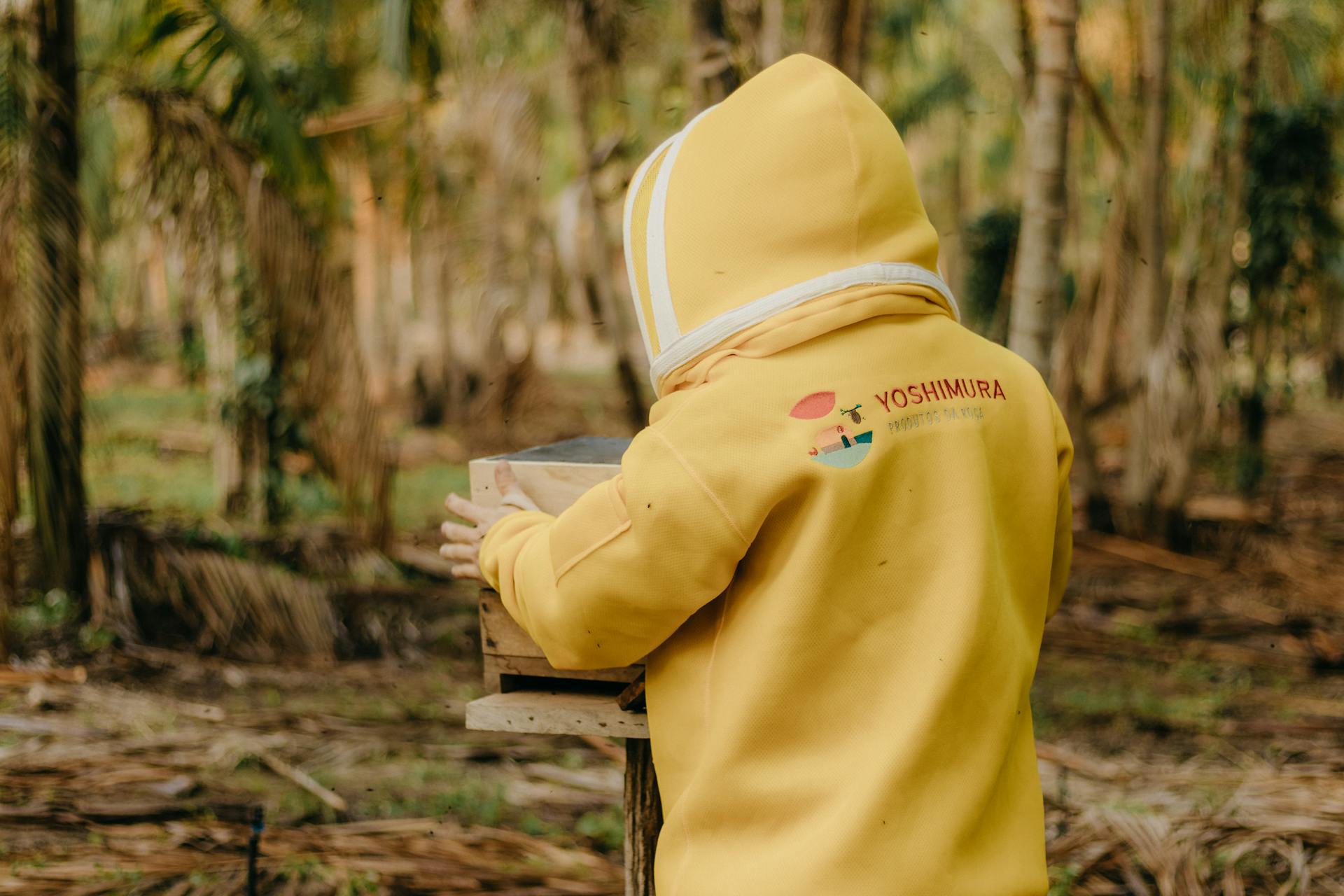
A person in a beekeeper suit | Source: Pexels
I hesitated, but Aunt Daphne’s words about responsibility echoed in my mind. Slowly, I started harvesting the honey, trying not to flinch when a bee buzzed too close.
Then, as I lifted a hive frame, I noticed a weather-beaten plastic bag tucked inside.
What’s this? I thought.
I quickly took it out and found a faded, hand-drawn map with strange markings. I immediately recognized Grandpa’s handwriting on it.
Curiosity trumped fear, and I followed the map, leading me through a small wooded area behind our house.

A path between trees | Source: Pexels
I stumbled over roots, swatted at mosquitoes, and nearly tripped a few times. Each time, Grandpa’s voice floated through my thoughts.
“Stay calm, Chloe. Rushing never gets you where you need to go.”
Taking a deep breath, I pressed on, eventually finding an old shed nestled among the trees.
Inside, there was another note pinned to a rickety shelf. It read, Almost there, Chloe. This journey’s about patience. Go to the bridge.
I shook my head, smiling at Grandpa’s persistence.

A close-up shot of a girl’s face | Source: Midjourney
Crossing the fields toward the bridge, I found myself navigating muddy patches and thorns snagging at my clothes.
“Hard work’s nothing to fear,” Grandpa had always said. “The best things come to those who put in the effort.”
At last, I reached the bridge. There, I found a small box under a loose plank. My hands trembled as I opened it.
Inside the box was a photograph of Grandpa and me, beaming, holding a bottle of honey we’d harvested years ago.
Next to it was a small note.
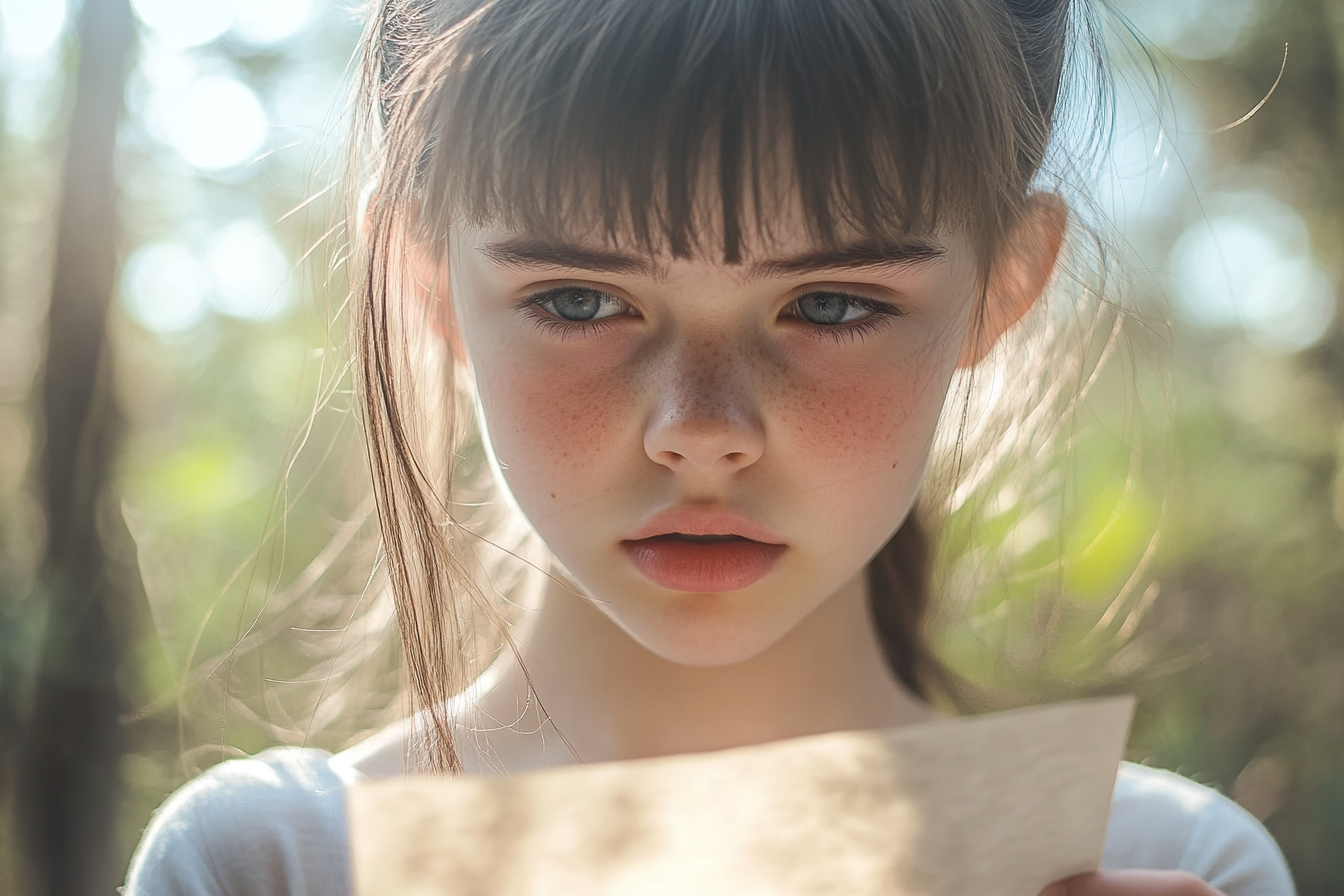
A girl reading a note | Source: Midjourney
It read:
Dear Chloe,
The greatest gifts in life aren’t things. They’re the lessons we learn, the patience we build, and the love we share. I wanted you to understand that wealth isn’t just money. It’s in hard work, patience, and caring for something. Thank you for following through. Our house, and the bees, they’re a part of you.
With all my love,
Grandpa.
I clutched the note as I finally understood why Grandpa left the apiary for me.

A girl looking straight ahead | Source: Midjourney
All this time, he had known exactly what I needed, far beyond any amount of money. Grandpa had set this up to show me a path that would stay with me forever.
When I returned to the house, Aunt Daphne was waiting. I told her everything, and she gave me a gentle smile.
“I knew he’d leave you a treasure hunt,” she said softly, pulling me into a hug. “He wanted you to see the true value of his gift.”
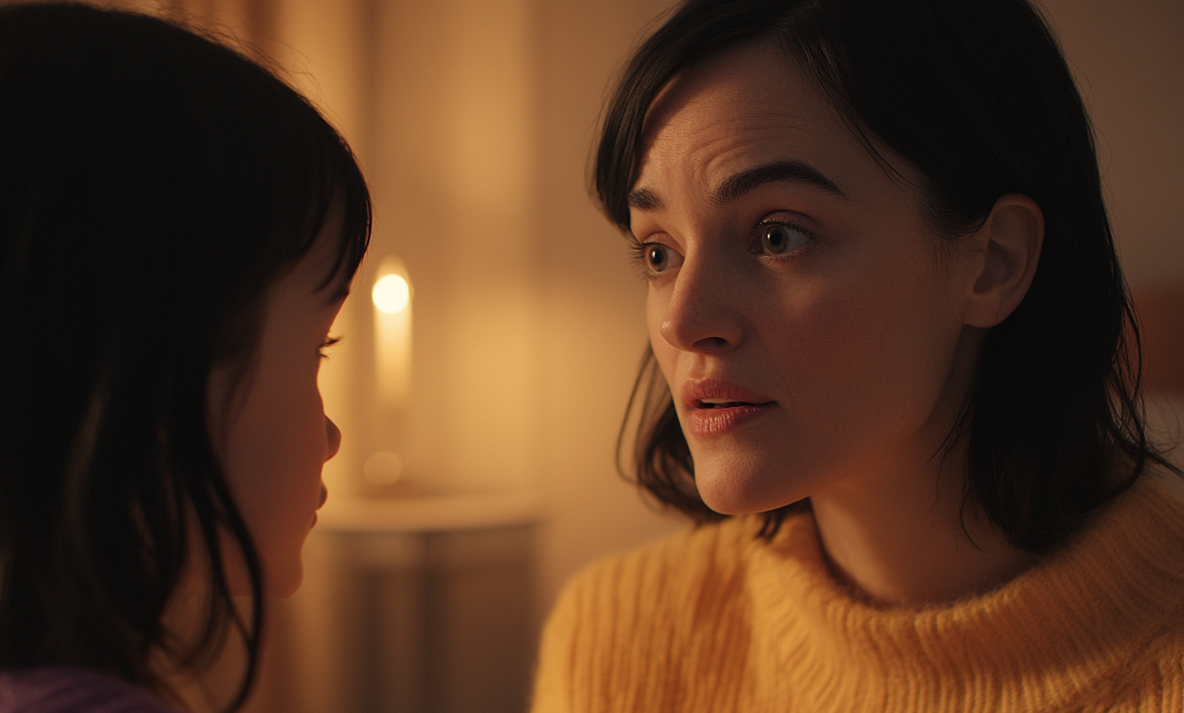
A woman talking to her niece | Source: Midjourney
I promised Aunt Daphne I’d look after the bees from then on.
And now, years later, I’m still here, tending Grandpa’s apiary. The lessons he left me are ingrained in every hive and honeycomb.
My little boy, Ben, often joins me and excitedly peeks into the hives. His favorite part is when we fill the honey jars together.
Grandpa taught me more than I ever imagined, and now I’m passing those lessons down.

A woman playing with her son | Source: Pexels
If you enjoyed reading these stories, here’s another one you might like: A grandmother was deceived and abandoned in a nursing home by her beloved grandson. She decided to teach him a lesson and left him an envelope with some money and a letter with a message that would haunt him forever after her death.
This work is inspired by real events and people, but it has been fictionalized for creative purposes. Names, characters, and details have been changed to protect privacy and enhance the narrative. Any resemblance to actual persons, living or dead, or actual events is purely coincidental and not intended by the author.
The author and publisher make no claims to the accuracy of events or the portrayal of characters and are not liable for any misinterpretation. This story is provided “as is,” and any opinions expressed are those of the characters and do not reflect the views of the author or publisher.
A young widow would come to her husband’s grave every week to water
We never get tired of good jokes that put a smile on our face and the following one will definitely make your day.
The truth is that there are certain women who marry quite older men for the sake of their inheritance, and the lady from this story is one such woman.
She never missed a week to go and visit her husband’s grave and water the flowers. But whenever she would leave the graveyard, she would walk away with her back turned.
A young gentleman who witnessed this happening each week couldn’t help but approach her and have a little chat with her.
“I see that you have shown exceptional respect to your deceased husband. I noticed that you don’t turn your back when you leave, which is very beautiful!” he said.

The woman, looking straight into his eyes gave a reply that left him completely speechless.
“Well, sir, my husband always used to tell me that I have a behind that could raise the dead from their graves. I don’t want to take any chances!”
Isn’t this hilarious?
Please SHARE this joke with your family and friends on Facebook if it made you laugh.
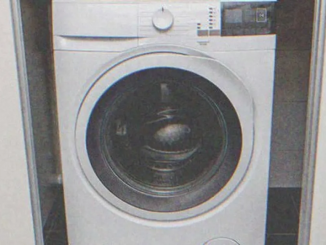

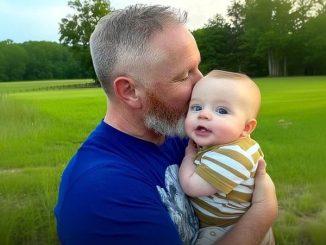
Leave a Reply